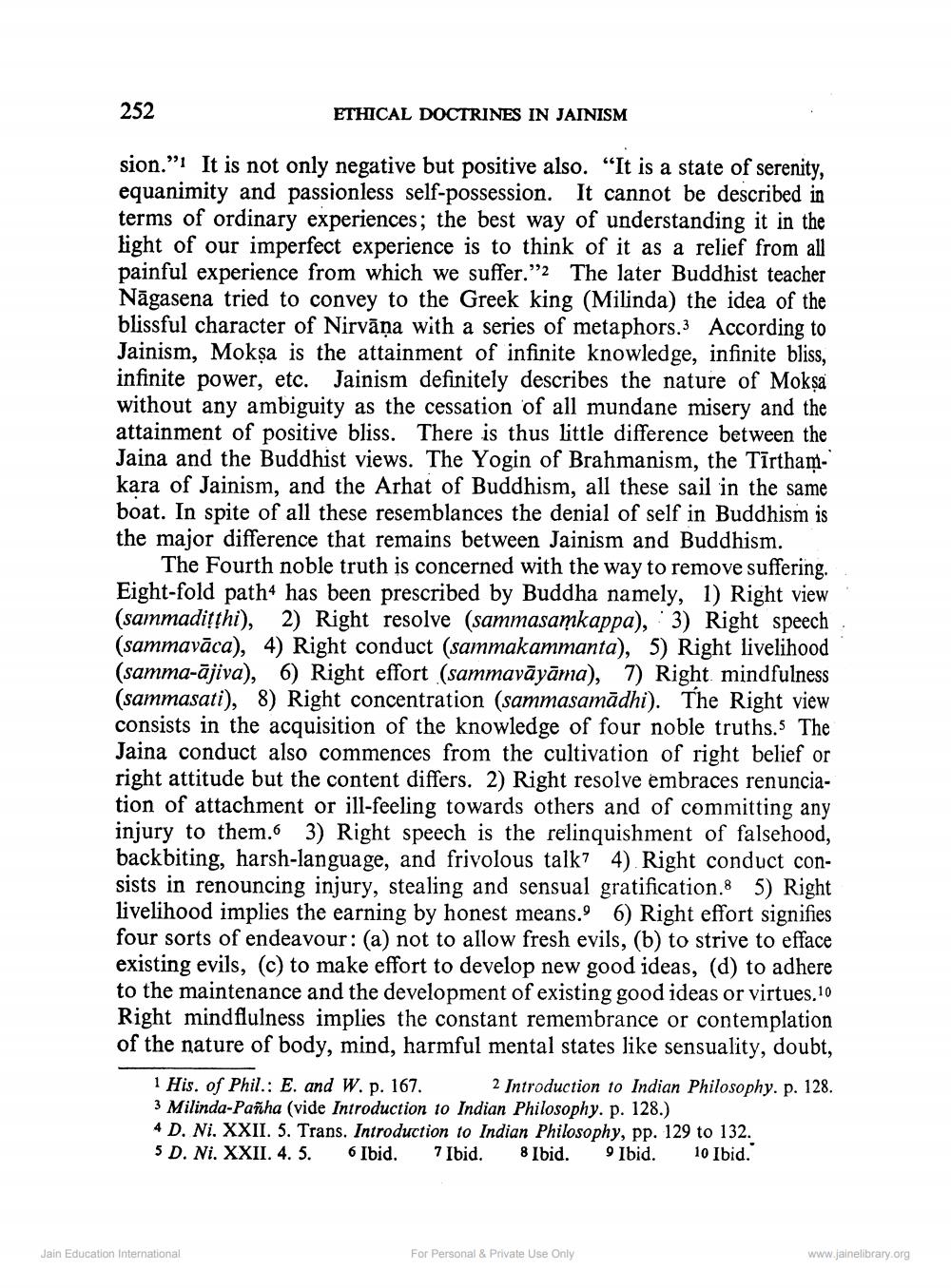________________
252
ETHICAL DOCTRINES IN JAINISM
sion.” It is not only negative but positive also. “It is a state of serenity, equanimity and passionless self-possession. It cannot be described in terms of ordinary experiences; the best way of understanding it in the light of our imperfect experience is to think of it as a relief from all painful experience from which we suffer." The later Buddhist teacher Nāgasena tried to convey to the Greek king (Milinda) the idea of the blissful character of Nirvāṇa with a series of metaphors. According to Jainism, Moksa is the attainment of infinite knowledge, infinite bliss, infinite power, etc. Jainism definitely describes the nature of Moksa without any ambiguity as the cessation of all mundane misery and the attainment of positive bliss. There is thus little difference between the Jaina and the Buddhist views. The Yogin of Brahmanism, the Tīrthamkara of Jainism, and the Arhat of Buddhism, all these sail in the same boat. In spite of all these resemblances the denial of self in Buddhism is the major difference that remains between Jainism and Buddhism.
The Fourth noble truth is concerned with the way to remove suffering. Eight-fold path4 has been prescribed by Buddha namely, 1) Right view (sammadițțhi), 2) Right resolve (sammasamkappa), :3) Right speech (sammavāca), 4) Right conduct (sammakammanta), 5) Right livelihood (samma-ājiva), 6) Right effort (sammavāyāma), 7) Right. mindfulness (sammasati), 8) Right concentration (sammasamādhi). The Right view consists in the acquisition of the knowledge of four noble truths.5 The Jaina conduct also commences from the cultivation of right belief or right attitude but the content differs. 2) Right resolve embraces renunciation of attachment or ill-feeling towards others and of committing any injury to them. 3) Right speech is the relinquishment of falsehood, backbiting, harsh-language, and frivolous talk? 4) Right conduct consists in renouncing injury, stealing and sensual gratification.8 5) Right livelihood implies the earning by honest means. 6) Right effort signifies four sorts of endeavour: (a) not to allow fresh evils, (b) to strive to efface existing evils, (c) to make effort to develop new good ideas, (d) to adhere to the maintenance and the development of existing good ideas or virtues, 10 Right mindflulness implies the constant remembrance or contemplation of the nature of body, mind, harmful mental states like sensuality, doubt,
1 His. of Phil.: E. and W. p. 167. 2 Introduction to Indian Philosophy. p. 128. 3 Milinda-Pañha (vide Introduction to Indian Philosophy. p. 128.) 4 D. Ni. XXII. 5. Trans. Introduction to Indian Philosophy, pp. 129 to 132. 5 D. Ni. XXII. 4. 5. 6 Ibid. 7 Ibid. 8 Ibid. Ibid. 10 Ibid.
Jain Education International
For Personal & Private Use Only
www.jainelibrary.org




